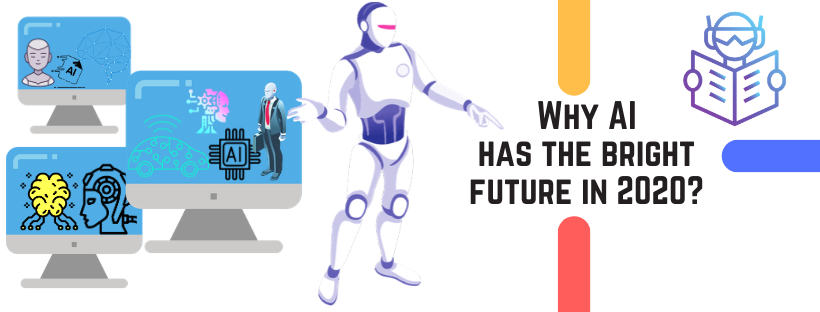Artificial
Intelligence (AI) has come a long way over the years, and 2023 is shaping up to
be a pivotal year for this technology. With advancements in machine learning,
natural language processing, and robotics, AI is poised to revolutionize the
way we live, work, and interact with the world around us. From self-driving
cars to virtual assistants, the applications of AI are endless, and the
possibilities are exciting. In this article, we'll take a closer look at why
2023 is the year of AI, and explore the bright future of this transformative
technology. Whether you're a tech enthusiast, business leader, or simply
curious about what the future holds, join us as we delve into the fascinating
world of AI and discover what lies ahead.
The
growth of AI technology
Over the
past few years, AI technology has grown at an incredible rate. In 2019, the
global AI market was worth $28.42 billion, and it's expected to reach $126.24
billion by 2025. Machine learning, in particular, has been a driving force
behind the growth of AI.
Key
advancements in AI technology
Today, we
have machines that can understand natural language, recognize faces, and even
drive cars. Some key advancements in Artificial intelligence technology are:
Natural Language
Processing (NLP)
NLP is a
branch of AI that focuses on allowing machines to understand human language.
This technology is used in virtual assistants like Siri and Alexa, as well as
chatbots and language translation tools. With NLP, machines can understand the
meaning behind words and respond in a way that makes sense to humans.
Robotics
AI-powered
robots are becoming increasingly common in industries such as manufacturing,
healthcare, and logistics. These robots can perform tasks that are too
dangerous or complex for humans, such as welding, painting, and assembling
products. They can also be used to perform tasks that require a high degree of
precision, such as surgery.
Self-Driving Cars
Self-driving
cars are a big example of AI technology. These cars are equipped with sensors,
cameras, and other technologies that allow them to navigate roads and avoid
obstacles. They can also communicate with other cars on the road, making
driving safer and more efficient.
Benefits
of AI technology
AI
technology has numerous benefits, both for individuals and businesses. Some of
the key benefits include:
Increased Efficiency
AI-powered
machines are faster and more accurate than humans. This can lead to increased
efficiency and productivity in industries such as manufacturing and logistics.
Improved Customer
Service
Virtual
assistants and chatbots can provide 24/7 customer service, answering questions
and resolving issues in real-time. it lead to enhanced customer satisfaction
and loyalty.
AI
predictions for 2023 and beyond
So, what can
we expect from Artificial intelligenceI in upcoming years? Here we have some
predictions for 2023 and beyond:
Personalized
Healthcare
AI-powered
healthcare tools will become more common, allowing doctors to personalize treatment
plans based on a patient's unique needs and medical history.
Smarter Homes
Smart homes
will become even smarter, with AI-powered devices that can anticipate our needs
and preferences.
More Automation
Automation
will continue to increase in industries such as manufacturing and logistics,
leading to increased efficiency and productivity.
AI in
different industries - healthcare, finance, and manufacturing
AI
technology has applications in a wide range of industries, including
healthcare, finance, and manufacturing.
Healthcare
AI-powered
healthcare tools can help doctors diagnose and treat patients more effectively.
For example, machine learning algorithms can analyze medical images and
identify potential health issues.
Finance
AI-powered
analytics tools can help financial institutions detect fraud and make more
informed investment decisions. These tools can also be used to personalize
financial advice for individual customers.
Manufacturing
AI-powered
robots can perform tasks that are too dangerous or complex for humans, leading
to increased efficiency and productivity. These robots can also be programmed
to perform tasks in a way that minimizes waste and reduces costs.
Impacts
of Artificial Intelligence on jobs and our society
While AI
technology has numerous benefits, it also has the potential to disrupt
industries and impact the job market. Some experts predict that AI could
replace up to 40% of jobs in the next 15 years. This could lead to significant
job loss in manufacturing and transportation industries. However, AI also has
the potential to create new jobs in areas such as software engineering and data
analysis.
Today AI has
become one of the most sought after subject in education world. Lots of academic
and non academic institutions and Training Institutes such as DigiBask Training
are offering Python with ML & AI to create AI professionals for IT
industry.
Challenges
and concerns with AI technology
There are
several challenges and concerns associated with AI technology. One of the
biggest concerns is bias. AI algorithms are based the data, and if that data is
wrong, the algorithm will be too. This can lead to discrimination and
perpetuate societal biases.
The
future of AI and its potential for innovation
Despite the
challenges and concerns, the future of AI is bright. AI has the potential to
transform industries, improve our quality of life, and create new opportunities
for innovation. As AI technology continues to advance, we can expect to see
even more exciting applications and use cases.
Conclusion
In
conclusion, 2023 is shaping up to be a pivotal year for AI technology. With
advancements in machine learning, natural language processing, and robotics, AI
is poised to revolutionize the way we live, work, and interact with the world
around us. While there are challenges and concerns associated with AI, the
benefits far outweigh the risks. As we look to the future, it's important to
continue to explore the potential of AI and ensure that it's used in a
responsible and ethical manner. the future of AI is so bright





